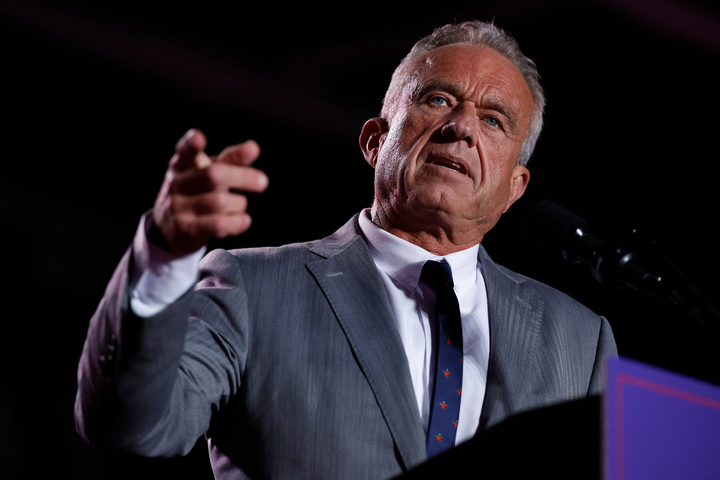When reality loses meaning, the system stalls by design.
Wall Street is used to volatility. It prices risk. It lives and dies by the future tense. But even volatility has its rules—some logic, some signals. Today, the signal is the volatility.
In the span of forty-eight hours, we've seen markets surge and then crater. The S&P 500 posted its best day since 2008, only to give back nearly half its gains the next. Not because of an economic report, not because of a geopolitical shock. Because the president said one thing on Wednesday and something entirely different on Thursday. Because the tariff rate was 125 percent. Then 145. Because he's "open to negotiations" but also "doesn't care if prices go up."
You can spin this as gamesmanship, deal-making, or the art of leverage. But this isn't poker night. This is macroeconomic policy in the world's largest economy. And when the seat of American power governs by ambush, the cost isn't just borne in the Dow. It's borne in the minds of the institutions that need consistency to function. The damage is epistemic.
Every functioning system requires some degree of forecastability. Governments draft budgets. Corporations file earnings guidance. Central banks model inflation pathways. Military planners rely on assumptions to game out escalation ladders. Remove the scaffolding of expectation, and you will paralyze decision-making. You make every plan provisional. You make certainty feel like a sucker's bet.
Right now, analysts are being whipsawed by hourly reversals. One moment, the White House promises a 90-day tariff pause; the next, it announces the highest import penalties in modern U.S. history. Traders, executives, diplomats—none of them can act with confidence. The result? A suspension of trust. Not just in markets but in the informational environment itself.
When the signal is the noise, strategy becomes superstition. CEOs delay investment. Central banks hesitate. Foreign ministries tread water. You can almost hear the clattering of keyboards in boardrooms and ministries worldwide: "Wait and see." But how do you wait when the terrain keeps liquefying beneath your feet? How can you see through the Trumpian fog?
Disruption has a trajectory. This is sabotage by stochastic theater. We are being governed by impulse, reverse-engineered into policy. A mood becomes a mandate. A tweet becomes a tariff. And markets—used to absorbing shocks—can't process uninhibited, unhinged schizophrenia as leadership.
Wall Street will survive this week. Maybe even rebound next. That's not the point. The point is what gets corroded in the meantime. Institutions run on memory and projection. They store information. They build heuristics. But none of that matters when the world works like a roulette wheel.
We know this from other domains. Authoritarian regimes rely on unpredictability to maintain psychological dominance. When a leader changes the rules arbitrarily, it trains the populace into passivity. You learn not to plan, not to trust, not to act without checking the wind. The aim is learned helplessness.
We're watching that logic applied to multinational markets, cabinet officials, the Federal Reserve, world leaders, and Fortune 500 companies. They don't know what's coming next because the man driving the agenda doesn't either. He decides in the moment, then backfills justification later. He calls that strength. But it's a demolition derby for anyone trying to build something real.
The epistemic cost is cumulative. After enough cycles of this, you don't just lose information—you lose faith in information. Analysts stop updating models because the models no longer apply. Journalists stop chasing clarity because clarity is a moving target. Investors stop reacting to the news because news is indistinguishable from propaganda. Domestic and foreign policymakers stop trying to engage because dialogue without consistency is performance, not negotiation.
The biggest casualty of all is the very idea of reality as shared terrain. When governing becomes improvisation, when policy becomes psychodrama, and when cause and effect are unmoored from precedent, we lose the ability to discern intention at all. Is this 145 percent tariff real? Is it a bluff? A tantrum? A tell? If everything is a tactic, then nothing is truth.
This is the terminal cost of epistemic instability: power unmoored from accountability. If the facts don't land, and decisions don't trace to data, logic, or precedent, then critique becomes pointless. There is no peg to hang opposition on. You're not arguing policy anymore. You're shadowboxing chaos.
Markets will price it in. Slowly. Cynically. But other systems won't recover so easily. The trust that lets a diplomat negotiate, or a civil servant draft legislation, or a public company project earnings—that trust doesn't come back on a bull run. It takes years to rebuild. And fewer than that to destroy.
This is not about whether tariffs are good or bad. This is about whether governance itself is legible, whether actions are anchored to anything beyond the temper of one man, and whether institutions can plan, act, and adapt with integrity.
Because if not, then the risk is bigger than a recession. It's epistemic entropy. And once that sets in, there is no forecast. Only fallout.
Now, more than ever, the world needs an independent press that is unencumbered by commercial conflicts and undue influence.
By taking out an optional founding membership, you can help us build a free, accessible, independent news platform firewalled from corporate interests.
Support The Index



